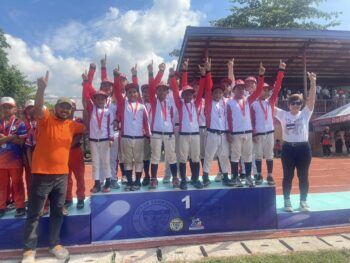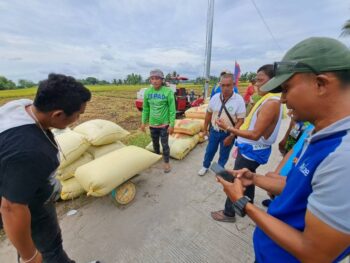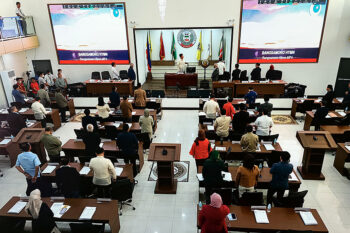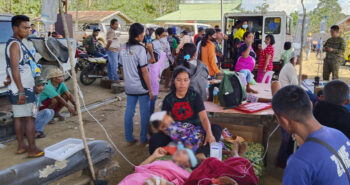“What is good for the Moros should be good for all other Filipinos.” This is why we should amend the Constitution to establish autonomous regions on the basis of local and regional self-determination—in order to promote good governance and equitable development all over the country. A conscientious proposal to this effect has been crafted by the Citizens’ Movement for a Federal Philippines (CMFP) in 2001 and by the Consultative Commission on Charter change in 2005. Many local leaders are receptive to it.
Why do we want our highly centralized Unitary System changed by revising the 1987 Constitution? Because of its serious weaknesses and disadvantages.
1. Our Unitary System is highly centralized in Metro Manila—“Imperial Manila.” With very limited powers and authority and inadequate resources, most of our local governments cannot provide the public services that our people need and expect locally.
2. National taxes siphon or take away much of the wealth and revenues generated by agriculture and other industries in various local communities around the country. Major corporations, including banks, pay their taxes in Metro Manila whose cities benefit more from their activities than the provinces and other cities in which the branches of the corporations operate.
3. Local officials have to spend much of their time and energy and their limited funds seeking the assistance and approval of national government officials in Metro Manila. Local dependence on the national government stifles local initiative and resourcefulness, and hampers local business and development.
5. Our centralized Unitary System is not sensitive to our cultural diversity. The nation has many ethno-linguistic and cultural communities and a large Muslim minority, the Moros. The migration of large numbers of people from other parts of the country to these communities has led to their loss of identity and ancestral domain, and to their poverty.
6. Our centralized Unitary System has failed to effectively address our problems and continuing underdevelopment—our poverty, social inequality, unemployment, inadequate social services, the lack of transparency and accountability that breeds corruption, the government’s increasing deficits and public debt, endemic rebellion, etc.
7. Decades of unitary rule under the policy of assimilation and national integration have marginalized the Moros and other indigenous peoples in various parts of the country. Meanwhile many settlers in Mindanao and other regions are becoming prosperous. Deteriorating relations between the Moros and the national government have led to many years of violence and rebellion—the death, displacement and suffering of thousands of people.
8. Under our Unitary System the efforts to promote local autonomy since the 1950s have reached a dead end, because of the reluctance of most national political leaders to decentralize the powers of the national government. The centralization of power enhances their power and control over the local communities.
9. Since 1946 our centralized Unitary System has failed to effectively address our problems and continuing underdevelopment—our poverty, social inequality, unemployment, inadequate social services, the lack of transparency and accountability. For these reasons the regional autonomy movement seeks to change our centralized unitary structure to a decentralized structure of autonomous local governments and regions in transition to a future federal system.
What do we mean by people’s self-determination in creating autonomous regions?
The process starts with a petition to Congress by the legislative bodies of contiguous, compact and adjacent provinces and cities for the creation of the autonomous region. In response, Congress shall pass an organic act which shall define the basic structure of government for the autonomous region. The organic act must be ratified by a majority of the votes cast in a plebiscite in order to take effect.
Substantive Regional and Local Autonomy. The organic act of the autonomous regions shall provide for primary legislative powers of their assemblies over the following: (1) Administrative organization, planning, budget, and management; (2) Creation of sources of revenues and finance; (3) Agriculture and fisheries; (4) Natural resources, energy, environment, indigenous appropriate technologies and inventions; (5) Trade, industry and tourism; (6) Labor and employment; (7) Public works, transportation, except railways, shipping and aviation; (8) Health and social welfare; (9) Education and the development of language, culture and the arts as part of the cultural heritage; science and technology; (10) Ancestral domain and natural resources; (11) Housing, land use and development; (12) Urban and rural planning and development; (13) Such other matters as may be authorized by law for the promotion of the general welfare of the people of the autonomous territory.
The National Government shall provide financial assistance to the various autonomous regions, especially the poorest and least developed ones.
What are the expected advantages of substantive regional and local autonomy in a transition to a future Federal Republic with a Parliamentary Government?
1. It will build a just and enduring framework for peace through unity in our ethnic, religious, and cultural diversity, especially in relation to Bangsa Moro and our lumad/indigenous peoples everywhere. Responsive Regional Autonomy will accommodate the legitimate interests of the Moros, end the war in Mindanao, and discourage secessionism.
2. As the people become more involved in government decisions, they will raise their political awareness and demand better performance and public accountability. Their participation and efficacy in elections and the making of government decisions will enhance the quality of governance. Better policies and implementation will enable the people to raise their standard of living. At the same time they will be more willing to pay taxes that will finance government programs and services for their direct benefit.
3. The creation of autonomous regions that will become federal states under a future federal system will improve governance by challenging and energizing local and regional leaders, entrepreneurs, and citizens around the country. It will release them from the costly, time-consuming, stifling, and demoralizing effects of excessive central government controls and regulation in our traditional unitary system.
4. Autonomous regions and local autonomy will specifically strengthen the powers of the provincial governors, city and municipal mayors, and other elected local government leaders.
5. A future Federal Republic, together with Parliamentary Government, will improve governance by promoting the development of strong, united, disciplined, and program-oriented political parties that are responsible and accountable to the people for their conduct and performance in and out of power.
6. Future Federalism will promote equitable regional development by supporting the less endowed and developed regions and the poor and the needy across the land.
7. Thus, regional autonomy towards federalism will stimulate and hasten our country’s political, economic, social, and cultural development and modernization. There will be interregional competition in attracting domestic and foreign investments and industries, professionals and skilled workers. A renaissance of regional languages and cultures will enrich the national language and culture. will broaden and deepen our democracy.
8. In other words—with political will and sustained effort for the common good—regional and local autonomy and future Federalism and Parliamentary Government will gradually broaden and deepen our democracy, enabling it to deliver on the constitutional promise of human rights, a better life for all, a just and humane society, and responsible and accountable political leadership and governance.
(MindaViews is the opinion section of MindaNews. Jose “Pepe” Abueva is former President of the University of the Philippines system and is now President of Kalayaan College. The author has granted MindaNews permission to publish this piece he wrote for his column in The Bohol Chronicle).







